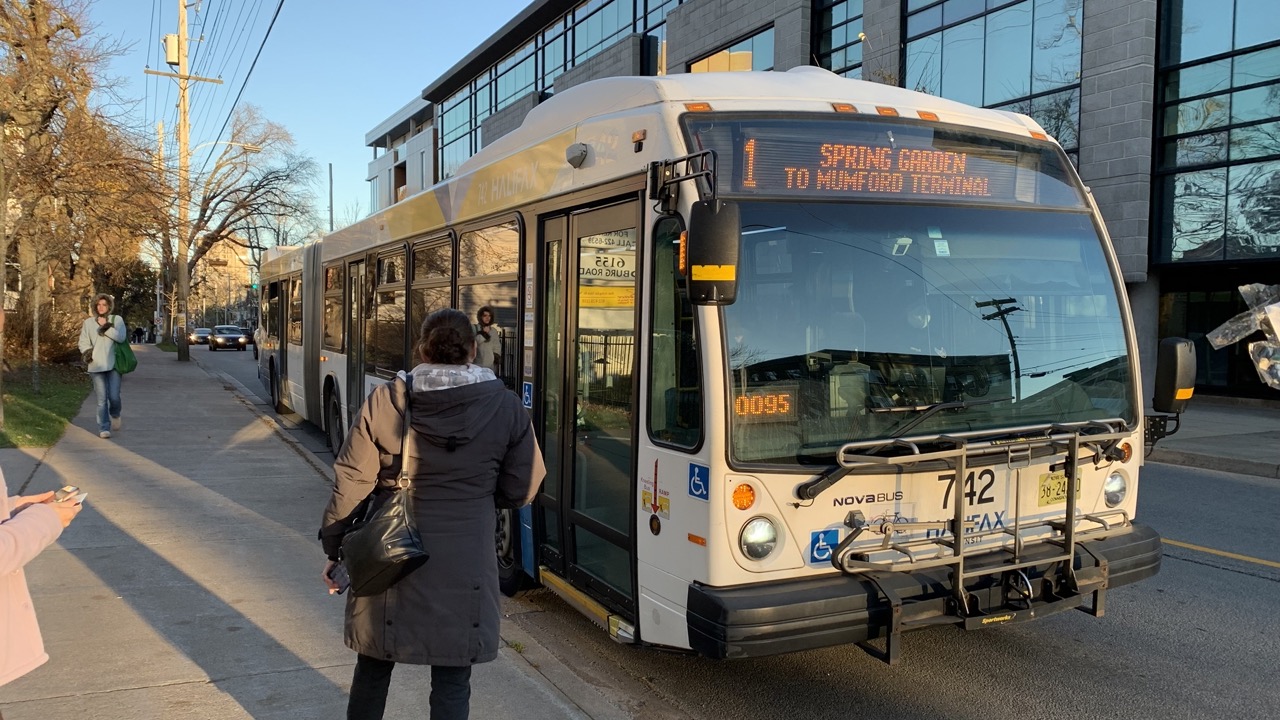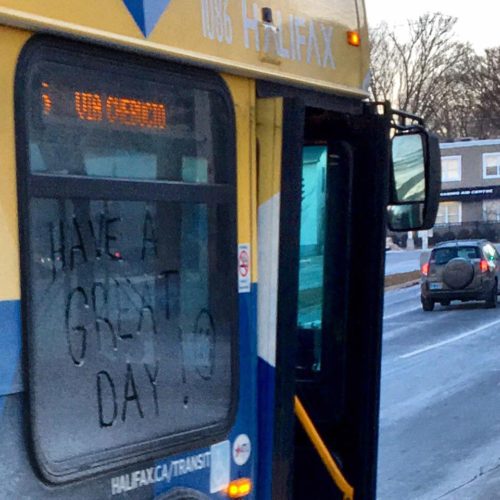Halifax Transit complaints reflect poor working conditions for staff, says union
Data reveals that operators file more complaints than passengers; union head faults staff shortages

caption
Passengers board a Halifax Transit bus on Coburg Road in Halifax.Worker complaints show the unsafe working conditions of Halifax Transit, and how poorly they have been treated since staff shortages became an issue, according to the head of the transit workers’ union.
“We work in a very dangerous situation and people don’t believe it,” said Shane O’Leary, president of the Amalgamated Transit Union Local 508.
“People don’t understand how often we’re threatened, how often we’re assaulted, how often our lives are at risk, and we feel in almost all situations that we’re out there alone.”
The Signal obtained data through a freedom of information request. It revealed calls to 311, the Halifax Transit complaint line, from April to October 2021.
Of the 294 reports, most complaints were filed by transit operators. Only July saw the passengers make more complaints than transit staff.
O’Leary is not surprised by the numbers in this period. He said this year is “pretty well the same,” and the complaints outlined in the data are “definitely” due to the staff shortages. The employees are overworked, and that causes disputes on transit, which then leads staff to quit. It happened in 2021, he said, and it’s happening now.
O’Leary said Halifax Transit has always been understaffed, but since the COVID-19 pandemic the staff shortages have accelerated.
“We have resignations every week,” he said. “We have early retirements a couple times a month. People are just fed up."
The budget that Halifax Transit submitted in February said the organization “employs a workforce of more than 1,000 employees and operates two transit maintenance and storage centres, three ferry terminals, 11 bus terminals, and 14 Park & Ride lots.”
O’Leary said Halifax Transit still needs more than 100 more drivers to eliminate overtime.
In an email, Halifax Regional Municipality spokesperson Maggie-Jane Spray said that operators often file more complaints because they are required to submit incident reports. She said the municipality is “working alongside staff, operators, and community partners” to help make transit staff feel safer.
“Operator and passenger safety is a top priority,” Spray said. “We are currently working on an anti-assault campaign, as concerns have been raised about incidents with operators or amongst passengers.”
O’Leary is not confident about this anti-assault campaign, saying, “whenever they run a campaign like that they put up a couple posters and that’s about it.”
Public opinion
The FOI showed all complaints from April to October 2021. While most of the complaints in this seven-month period were submitted by operators, many were also made by passengers on behalf of operators.
“I was appalled to witness racism on the bus,” one passenger called in. “The poor bus driver took abuse from a passenger, was told to ‘eff off’ and go back to the country he came from.”

caption
The profile picture of the Halifax Transit Chat Facebook group.Renzo Lenses uses transit regularly. He is one of the 5,500 followers of the Halifax Transit Chat Facebook page. He posted about a passenger who was rude to a bus driver for not knowing another bus route offhand.
“No way a driver would be able to remember thousands of departures and arrivals for every single route,” said Lenses. “Just because a driver is driving one route doesn’t mean they should know or be expected to know every single time for the thousands of stops in the city. They are not computers, they are humans.”
O’Leary appreciates the support of people like Lenses. He said that if the municipality hires more operators, there would be fewer disruptions in route times, which would result in fewer confrontations with passengers.
“Recruitment and retention are keys and if you can supply the staff to do the work in a less stressed environment then that will trickle down and the passenger will be satisfied,” said O’Leary.
With files from Luke Dyment.
About the author
Jake Webb
Jake Webb is a fourth-year student in the Bachelor of Journalism (Honours) program at the University of King's College.
